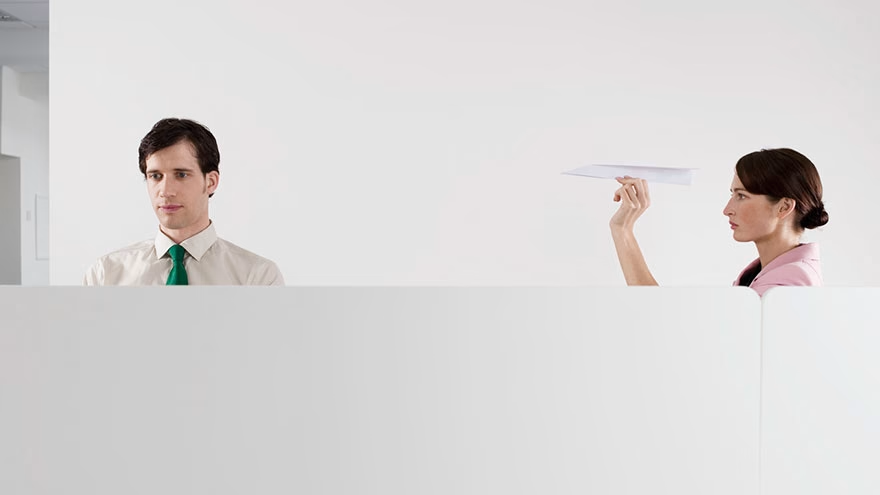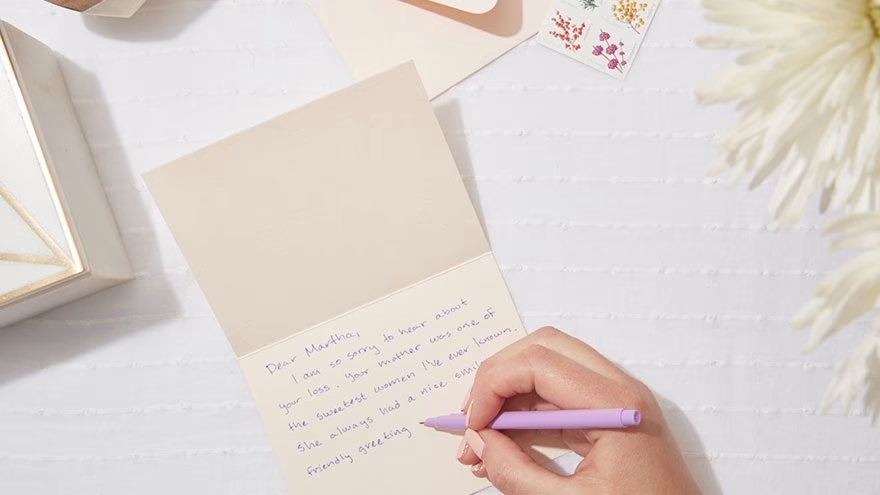Since cubicles cannot be secured by lock and key, interior walls remain visible to coworkers and company guests alike. Choose humor, both posted and verbally recounted, wisely.

Purpose
Humor brings levity to the challenges of working in close quarters or with little privacy. When used judiciously, humor serves as an important business tool.Rhonda Adams in Inc. Magazine, says "Using humor wisely can relieve stress, increase communication, enhance motivation, and just make dealing with the ups and downs of daily business life a whole lot easier."
Posting Jokes
According to Peggy Post, author of Emily Post's The Etiquette Advantage in Business, "Cubicle walls often become billboards and are a great way to share a cartoon, a joke, or an article that's particularly apropos. But be careful with your choices."Resist the temptation to post cartoons and jokes peppered with double-entendres and expletives to entertain co-workers. Racist, sexist, or obscene material has no place in the workplace.
Telling Jokes
Avoid embarrassing moments by keeping the humor clean and voices low. Choose subject matter wisely, especially if you do not know a new coworker, or you are new and must acclimate to the company's culture.When seated at your desk, cubicle walls often hide guests, such as clients and company presidents, strolling through the aisle. The art of humor can strengthen business relationships, but never repeat something you would not want an important client to hear.
Sounds
Sound effects may make a joke funnier. However, small spaces amplify slurps, burps and other sudden noises. Since cubicles provide little sound cancellation, consider a cubicle a public place when telling a joke. If nearby coworkers answer or dial their phone, raucous laughter carries across the line. Save humorous noises for after hours.
Constructive Humor
Posting negative jokes about the company can affect an employee's reputation as a team player. However, Bloomberg Businessweek columnist Karen E. Klein suggests, "If the business owner or manager is someone who doesn't respond well to direct challenges from employees, they might find a way to criticize indirectly with humor."When one coworker expresses herself with humor, it may represent the feelings of others. If coworkers remain receptive, the jokes continue. Address concerns with your superiors before mounting a subtle campaign.
Hostile Humor
One mean-spirited joke displays poor taste, but persistent derogatory humor regarding a coworker's gender, race or ethnicity creates a hostile work environment and may constitute harassment. The U.S. Equal Employment Opportunity Commission, or EEOC, does not classify harassment as a single off-hand comment, but rather as "severe or pervasive."Discourage the offender by asking him to stop, and refrain from encouraging him with laughter. If she does not comply, report her to a supervisor or the EEOC. While state laws may vary, the law protects whistleblowers from retribution.
You Might Also Like :: How to Customize Your Cubicle at Work
Save for later
Found this helpful?
Pin this article to your Pinterest board and come back to it whenever you need a reminder.
Save to Pinterest


